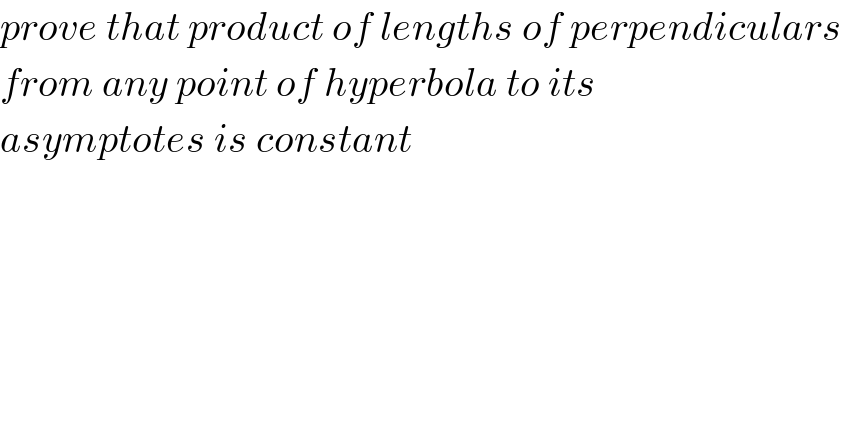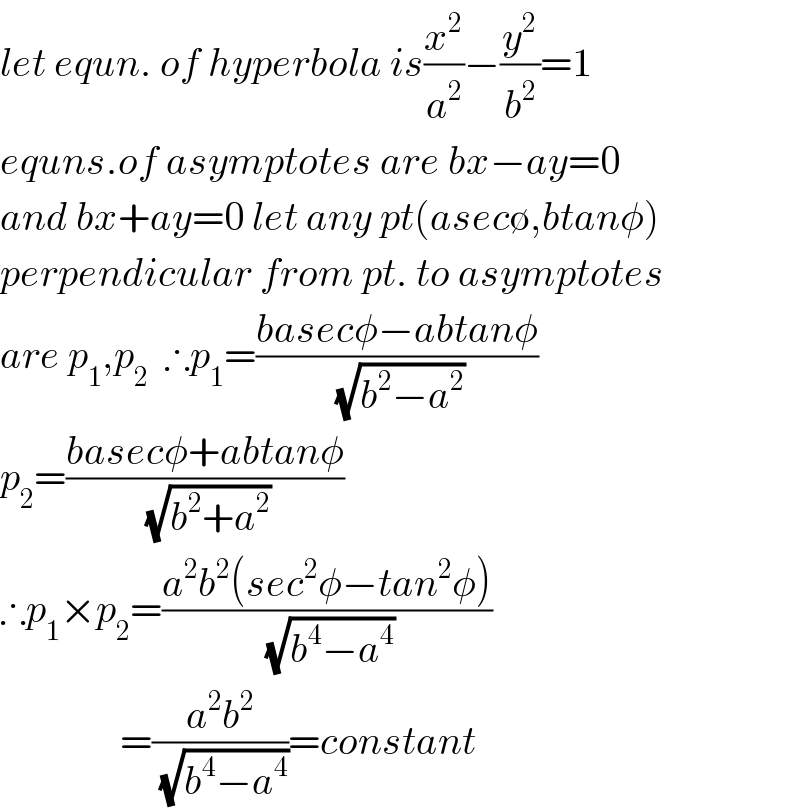
Question Number 43921 by peter frank last updated on 17/Sep/18

$${prove}\:{that}\:{product}\:{of}\:{lengths}\:{of}\:{perpendiculars} \\ $$$${from}\:{any}\:{point}\:{of}\:{hyperbola}\:{to}\:{its} \\ $$$${asymptotes}\:{is}\:{constant} \\ $$
Answered by math1967 last updated on 18/Sep/18

$${let}\:{equn}.\:{of}\:{hyperbola}\:{is}\frac{{x}^{\mathrm{2}} }{{a}^{\mathrm{2}} }−\frac{{y}^{\mathrm{2}} }{{b}^{\mathrm{2}} }=\mathrm{1} \\ $$$${equns}.{of}\:{asymptotes}\:{are}\:{bx}−{ay}=\mathrm{0} \\ $$$${and}\:{bx}+{ay}=\mathrm{0}\:{let}\:{any}\:{pt}\left({asec}\emptyset,{btan}\phi\right) \\ $$$${perpendicular}\:{from}\:{pt}.\:{to}\:{asymptotes} \\ $$$${are}\:{p}_{\mathrm{1}} ,{p}_{\mathrm{2}} \:\:\therefore{p}_{\mathrm{1}} =\frac{{basec}\phi−{abtan}\phi}{\sqrt{{b}^{\mathrm{2}} −{a}^{\mathrm{2}} }} \\ $$$${p}_{\mathrm{2}} =\frac{{basec}\phi+{abtan}\phi}{\sqrt{{b}^{\mathrm{2}} +{a}^{\mathrm{2}} }} \\ $$$$\therefore{p}_{\mathrm{1}} ×{p}_{\mathrm{2}} =\frac{{a}^{\mathrm{2}} {b}^{\mathrm{2}} \left({sec}^{\mathrm{2}} \phi−{tan}^{\mathrm{2}} \phi\right)}{\sqrt{{b}^{\mathrm{4}} −{a}^{\mathrm{4}} }} \\ $$$$\:\:\:\:\:\:\:\:\:\:\:\:\:\:\:=\frac{{a}^{\mathrm{2}} {b}^{\mathrm{2}} }{\sqrt{{b}^{\mathrm{4}} −{a}^{\mathrm{4}} }}={constant}\: \\ $$
